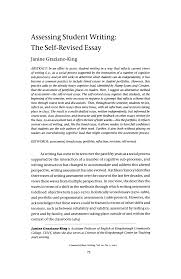If you’re asked to write a what are your strengths as a student essay, consider the areas of your life that you excel in. Your leadership skills, critical thinking skills, and resilience are likely to stand out among the rest of your peers. If you enjoy being around people and volunteer, these might be your strongest attributes. Those with an aptitude for reading and writing may find that communication is one of their strongest skills.
Leadership
The first step in writing a Leadership strengths as a student essay is to determine the prompt. Many college essays focus on a single experience, but focusing on one activity or organization provides the chance to showcase different leadership qualities and personalize the essay. Unlike “service/volunteering” essays, however, an essay centered on leadership qualities can show the writer’s breadth and depth of interests. For example, Jeeva’s essay, Leadership as a student, mentions his involvement in a niche organization that relates to his interests and career goals.
While some people believe that leaders are born, others disagree. Whatever your leadership strength, be sure to illustrate it with examples. Remember that the role of a student leader is to inspire and motivate. By doing so, you’re helping people gain skills and try new things, allowing them to grow. This kind of leadership style will go a long way in helping you gain respect in college. Therefore, make sure that you have examples of leadership roles you’ve had and how they’ve helped you grow as a person.
While leadership essays can focus on an example of a student’s leadership style, the content of an essay must be original. It should be based on the writer’s personal experiences, but it can also be a comparison of two students with similar characteristics. In addition, it is important to follow the formatting requirements of the institution. If you’re writing a leadership essay for college, be aware that some institutions have strict formatting requirements and that non-adherence can lower your grade.
Critical thinking
Students who excel at critical thinking are more likely to excel academically. They understand the significance of historical events, and they can analyze them using logical arguments. While many students are inclined to let emotions take over when presenting their arguments, critical thinking allows students to balance emotions and logic in a more constructive manner. For example, a student speaking on the importance of health care can use their personal struggle story to motivate people, but the data he provides to support his arguments is reliable and accurate.
Critical thinking involves analyzing and questioning ideas and the likelihood of their consequences. Today’s students have grown up in an information-rich environment, and they must learn to evaluate and recognize false information. While most people assume that critical thinking is typical, Barry K. Beyer describes critical thinking as “the ability to make clear, reasoned judgments”.
The ability to critically think is one of the most valuable skills students can learn. It enables students to evaluate what they know and do, identifying the flaws in their reasoning and analyzing the results. This process requires time, practice, and patience. Critical thinking questions can be helpful in each step. There are many examples of situations in which critical thinking is a strength. Here are some examples:
Resilience
Resilience is the ability to bounce back from adversity and develop new skills. Resilience develops through social, biological, and environmental factors. In addition to personal traits, resiliency is also learned. For example, the ancient Japanese art of kintsugi, which means “join with gold,” teaches students how to repair broken pottery. By applying this technique to a broken piece of pottery, a child can create a beautiful design. By developing this skill, human beings can also learn to deal with trauma and adversity.
It is vital to cultivate this student strength. In times of good fortune, students should take the time to reflect and consider how to carry forward the positive strategies. By embracing the challenge and applying personal strengths to it, they can develop wisdom, vision, purpose, and hope. In times of trouble, students can also help others develop their skills and help others develop theirs. But cultivating resilience is a lifelong journey.
In the long run, the benefits of resilience will pay off. The development of resilience will also improve a student’s emotional intelligence, leading to healthier peer interactions and fewer absences from school. By fostering student resilience, a student can avoid negative coping mechanisms that can be detrimental to their academic success and physical health. In addition to enhancing their self-esteem, resilient students will live a happier and longer life.
